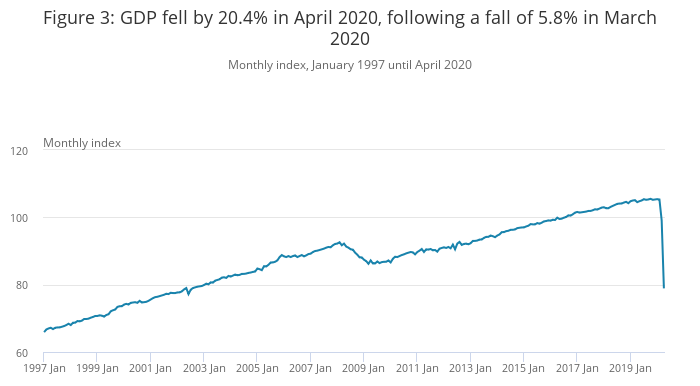In the weeks and months ahead it is likely that millions of employees will return to work as the UK economy finally starts to move again following the COVID-19 pandemic. The recent 20% plus reduction in GDP was not unexpected as a consequence of the lockdown, but it has certainly focused the eyes of business and employees on “getting back to normal”.

However, it appears that many employers are concerned about their legal standing in an array of issues such as:-
Employees contracting Covid-19
Unfortunately, it seems almost inevitable that thousands of employees could at some point contract COVID-19 in the weeks and months ahead. As the government readies itself for a second wave, employers are now concerned about their legal position. This is a very grey area but an employee contracting COVID-19 does not necessarily mean a potentially large payout on a personal injury claim. Legal advice seems to suggest, although this would need to be checked on a case-by-case basis, that employers cannot be prosecuted purely because an individual contracted the virus. However, they could be prosecuted for the way in which their employee contracted the virus; for example, if safety regulations were not adhered to. Basically, if negligence can be proven then this may well open the way for personal injury claims.
Job redundancies
The unions and arbitration services have been talking about expectations of a huge increase in equality/discrimination claims. Unfortunately, it seems inevitable that millions of people in the UK will have their working hours cut and many will be made redundant. Obviously, redundancies based on ethnicity, religion, etc can potentially be challenged in the courts. So, if you are an employer looking to avoid any personal injury claims in the future you need to have a fair and transparent redundancy procedure – one which will stand up in court.
Working from home
Potentially one of the lasting effects of the COVID-19 pandemic will be the growing number of people working from home. Some may choose to work from home because it is more convenient while others may have genuine concerns about health risks in the workplace and their own individual health challenges. From an employer’s point of view, it is illegal to force someone to return to work, if they have genuine concerns about the workplace and their safety. There is not so much legal protection for those looking to work from home but, from a business point of view, if the work is still being done then there are potential cost savings going forward. Yet another grey area!
The main problem with regards to guidance and support for businesses is the fact that this is a relatively new virus and as a consequence, many of the short, medium and long-term consequences are as yet unproven. So, on that basis, it is difficult for bodies such as the government or the CBI to give watertight advice to businesses at this point in time.
Sports clubs and Covid-19 liability
Those who follow sport, and in particular football, will be well aware that leading leagues in Europe such as Germany and England recently instigated a return to regular matches. Whether this was a genuine attempt to get things moving again or as a result of financial pressure from sponsors and TV companies is unclear. However, what we do know is that various football leagues and other sports are making a comeback.
This begs the question, where do clubs/football associations, as an example, stand in the event of a player, manager, medic, or other employees of an individual club/association contracting coronavirus? Would they be liable to prosecution? Could they be hit with a number of personal injury claims?
In reality both individual clubs and their respective football associations have been in negotiations for some time now together with various players unions. They have come together to create a plan which does as much as possible to protect all participants from the virus. Football fans have been “banned” for the foreseeable future and even minute details such as cleaning footballs which “leave the field of play for a prolonged period of time” are now commonplace. Clubs are testing their players many times a week, those showing symptoms are isolated, and any others they have been in contact with. It really is difficult to see how much more the sporting clubs and their respective associations could do in relation to health and safety in the workplace?
It is also worth noting that those invited to participate in such events, players, managers or any connected employees, also have the right to refuse to participate. We often forget that football and other professional sports are still covered by employment law which means that employers have a legal liability to protect the well-being and health of their employees. Forcing someone to attend their place of work is in theory illegal if an individual has genuine concerns for their health and safety. Whether we see such actions challenged in the courts by football clubs, still obliged to pay players wages during such periods of inactivity, remains to be seen. We may also see some players pursuing personal injury claims for physical/mental distress. Yes, this is a potential nightmare!
Summary
There is no doubt that the coronavirus pandemic has created so much doubt and uncertainty that it will take many months if not years to resolve many of these key issues. Employers are concerned that doing as much as possible to protect employees may not be enough to avoid legal action. From an employee’s point of view, many are concerned about being “pressured” to return to work when they have genuine concerns for their health and safety and that of their extended family. Then you have the issue of cost-cutting, which may be inevitable in the current economic downturn, and potential claims of inequality/discrimination.
Football fans, relieved that sport is back on the TV, often forget many players still have genuine concerns about playing in such a challenging environment. Is it really safe for football to return or have financial considerations played any part in recent decisions? First and foremost, employers have a legal obligation to protect the well-being and health of their employees. In theory, any financial considerations should be placed to one side – then there is the balancing act of protecting businesses going forward.
Whatever happens in the coming weeks, months, and years we will see a number of historic rulings regarding COVID-19 and the implications for a whole range of different parties. These will likely set precedents going forward and form the basis of rulings on similar events in the future.



